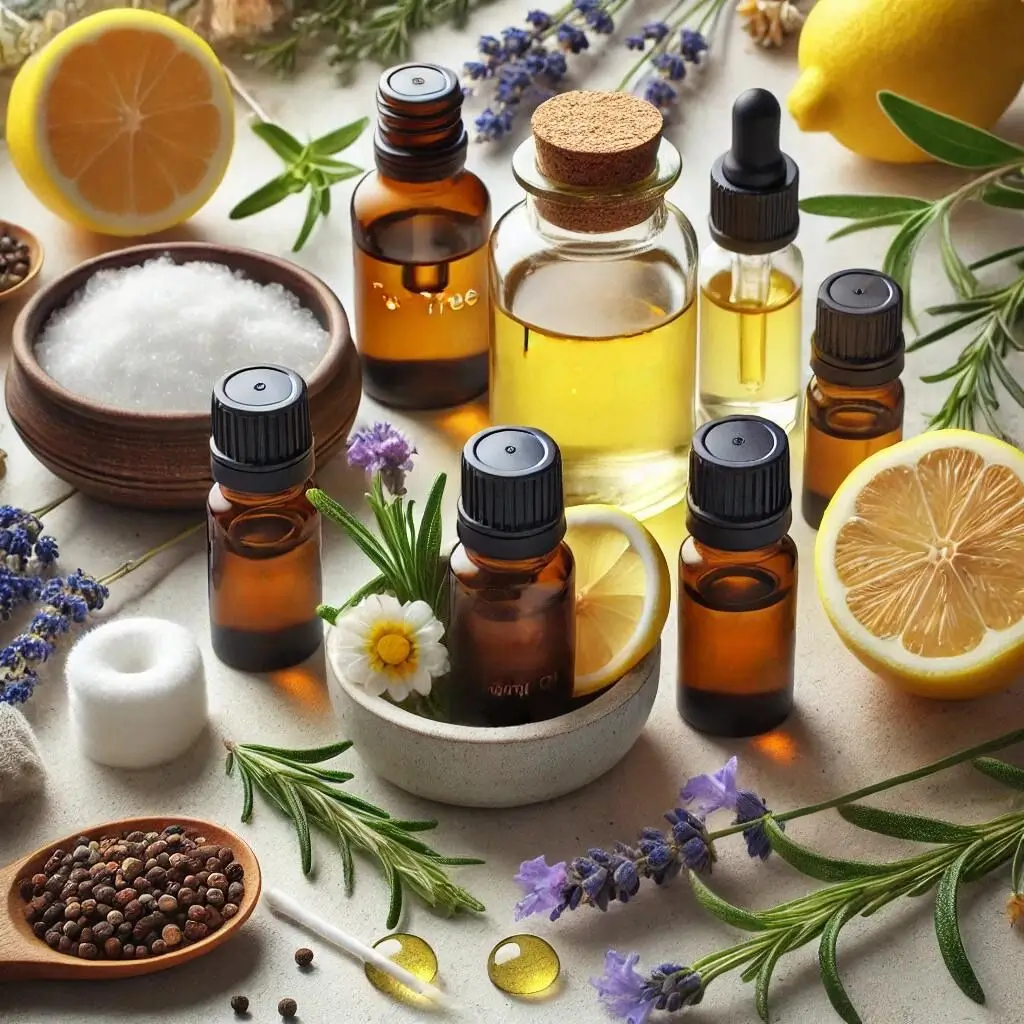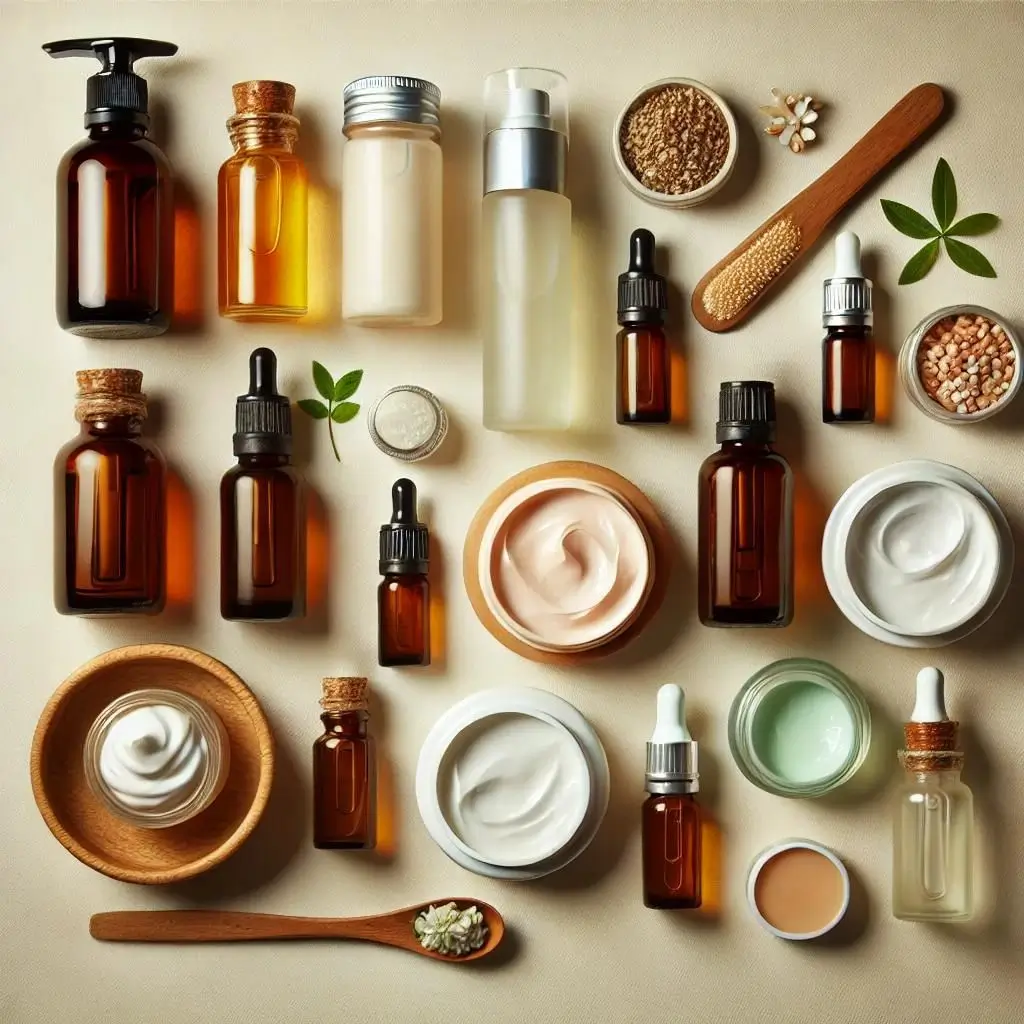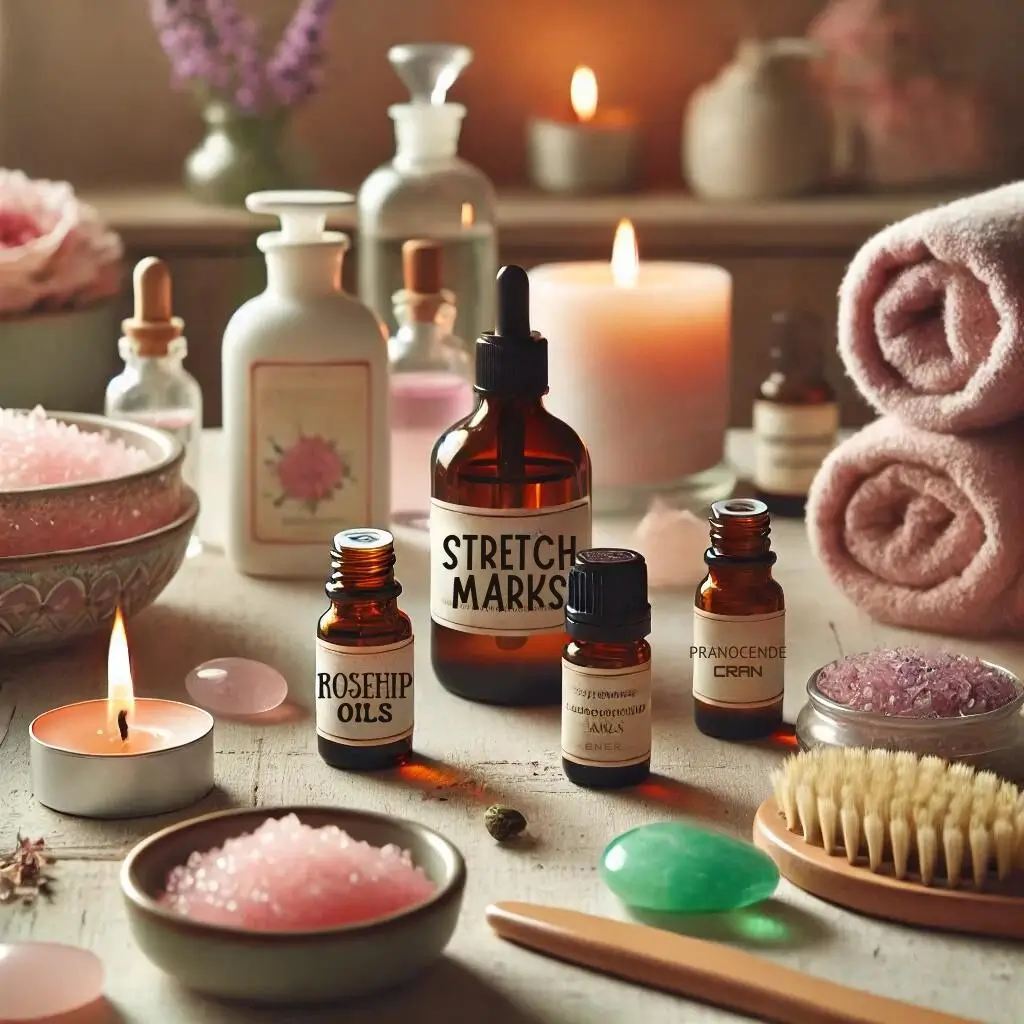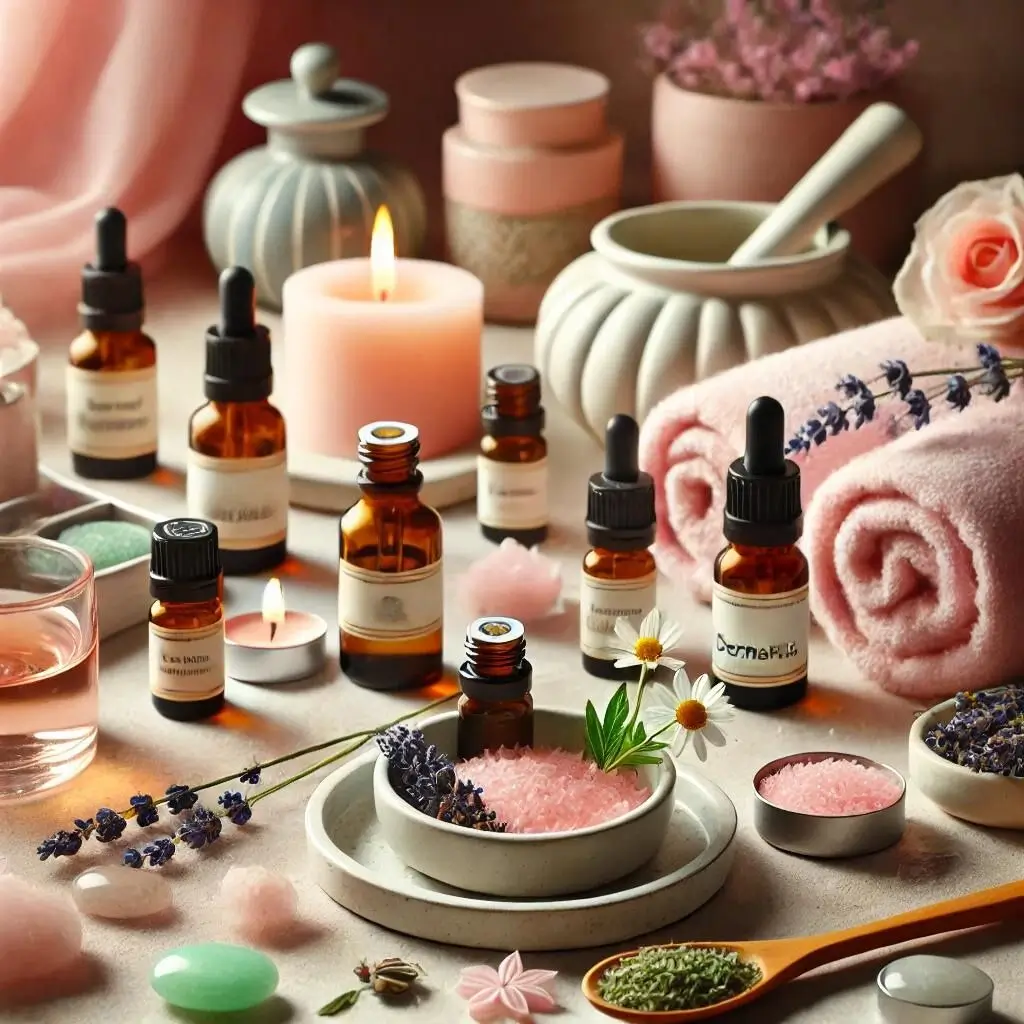Essential oils are a popular choice for managing oily skin due to their natural properties. They can help balance sebum production, reduce inflammation, and prevent acne, making them an excellent addition to your skincare routine. However, it’s crucial to choose the right essential oils and use them correctly to avoid exacerbating your skin condition.
What are the best essential oils for oily skin?
Several essential oils are particularly beneficial for oily skin, each offering unique properties that can help manage excess sebum and maintain a healthy complexion. Here are some of the top options:
| Essential Oil | Benefits |
|---|---|
| Tea Tree Oil | Antimicrobial, reduces acne |
| Lavender Oil | Balances sebum production |
| Geranium Oil | Tightens skin, regulates oil |
| Lemon Oil | Astringent, brightens skin |
| Rosemary Oil | Anti-inflammatory, reduces pores |
| Clary Sage Oil | Regulates oil, reduces inflammation |
These essential oils can be used individually or combined to create an effective skincare regimen.
How do essential oils help with oily skin?
Essential oils help manage oily skin by balancing sebum production, reducing inflammation, and providing antimicrobial properties that prevent acne. Here’s a detailed explanation:
- Balancing Sebum Production: Oils like lavender and clary sage help regulate the skin’s oil production, preventing it from producing excess sebum.
- Reducing Inflammation: Essential oils like tea tree and rosemary have anti-inflammatory properties that soothe irritated skin and reduce redness.
- Antimicrobial Effects: Tea tree and lemon oils have strong antimicrobial properties, helping to prevent acne caused by bacteria.
- Astringent Properties: Lemon oil acts as a natural astringent, tightening the skin and minimizing pores.
By addressing these key factors, essential oils can help keep oily skin under control and maintain a clear complexion.

Can essential oils make oily skin worse?
Yes, using the wrong essential oils or improper application can make oily skin worse. Some essential oils are too harsh and can strip the skin of its natural oils, leading to an overproduction of sebum. Oils like peppermint and eucalyptus, while beneficial in other contexts, might be too strong for oily skin and can cause irritation.
Tips to Avoid Making Oily Skin Worse
- Dilute Properly: Always dilute essential oils with a carrier oil to avoid irritation.
- Patch Test: Perform a patch test to ensure you don’t have an adverse reaction.
- Use Sparingly: Less is more; use small amounts to avoid clogging pores.
- Choose Non-Comedogenic Oils: Ensure the oils you use do not clog pores.
How should I use essential oils?
Using essential oils for oily skin involves proper dilution, application, and combination with other skincare products. Here’s a step-by-step guide:
- Choose the Right Essential Oil: Select an oil suitable for oily skin, like tea tree or lavender.
- Dilute with Carrier Oil: Mix essential oils with a non-comedogenic carrier oil, such as jojoba oil, in a 1:10 ratio.
- Perform a Patch Test: Apply a small amount to your inner arm and wait 24 hours to check for any reaction.
- Cleanse Your Skin: Start with a clean face to allow better absorption.
- Apply the Mixture: Gently apply the diluted essential oil mixture to your face, focusing on oily areas.
- Moisturize: Follow up with a light, non-comedogenic moisturizer to lock in hydration.
What are the side effects of using essential oils?
While essential oils can be beneficial, they can also cause side effects if not used properly. Common side effects include:
- Irritation and Redness: Undiluted or harsh oils can irritate the skin.
- Allergic Reactions: Some people may be allergic to certain essential oils.
- Photosensitivity: Citrus oils like lemon can make your skin more sensitive to the sun.
- Clogged Pores: Using too much oil or not properly cleansing can lead to clogged pores and breakouts.
Always start with a small amount and gradually increase as your skin adapts.
Which essential oils should be avoided for oily skin?
Not all essential oils are suitable for oily skin. Some can exacerbate the condition by being too heavy or irritating. Oils to avoid include:
- Coconut Oil: Highly comedogenic, can clog pores.
- Olive Oil: Can be too heavy and cause breakouts.
- Peppermint Oil: Can irritate sensitive skin.
- Eucalyptus Oil: Too strong and can cause dryness or irritation.
Stick to lighter, non-comedogenic oils that are specifically known for their benefits to oily skin.
Can essential oils be combined for oily skin treatment?
Yes, combining essential oils can enhance their benefits for oily skin. Blending oils allows you to target multiple skin concerns simultaneously. Here are a few combinations:
- Tea Tree + Lavender: Balances oil production and prevents acne.
- Geranium + Lemon: Tightens skin and brightens complexion.
- Rosemary + Clary Sage: Reduces inflammation and regulates sebum.
When blending, always dilute the mixture with a carrier oil to avoid irritation.
Are there any DIY essential oil recipes for oily skin?
Creating your own essential oil blends at home can be both fun and effective. Here are a couple of DIY recipes:
Balancing Face Serum
- Ingredients:
- 10 drops of tea tree oil
- 10 drops of lavender oil
- 2 tablespoons of jojoba oil
- Instructions:
- Mix the essential oils with jojoba oil in a small glass bottle.
- Apply a few drops to clean skin at night.
Refreshing Toner
- Ingredients:
- 5 drops of lemon oil
- 5 drops of geranium oil
- 1/2 cup of witch hazel
- Instructions:
- Combine the ingredients in a spray bottle.
- Shake well and spray onto a cotton pad to apply to the face after cleansing.
How often should I use essential oils on oily skin?
The frequency of use depends on your skin’s tolerance and the specific oils used. Here are some general guidelines:
- Daily Use: Light oils like tea tree and lavender can be used daily.
- 2-3 Times a Week: Stronger oils or new blends should be used a few times a week.
- Patch Test First: Always start with a patch test and gradually increase frequency.
Adjust based on how your skin responds, ensuring you don’t overdo it and cause irritation.
What other natural remedies work well with essential oils for oily skin?
Combining essential oils with other natural remedies can enhance their effectiveness. Here are some complementary options:
- Aloe Vera: Soothes and hydrates without clogging pores.
- Clay Masks: Absorb excess oil and impurities.
- Witch Hazel: Acts as a natural astringent, tightening pores.
- Honey: Moisturizes and has antibacterial properties.
Using these natural ingredients alongside essential oils can help maintain balanced, healthy skin.
Conclusion
Essential oils offer a natural and effective solution for managing oily skin. By selecting the right oils and using them correctly, you can balance sebum production, reduce inflammation, and prevent acne. Always start with a patch test, dilute properly, and combine with other natural remedies for the best results.




